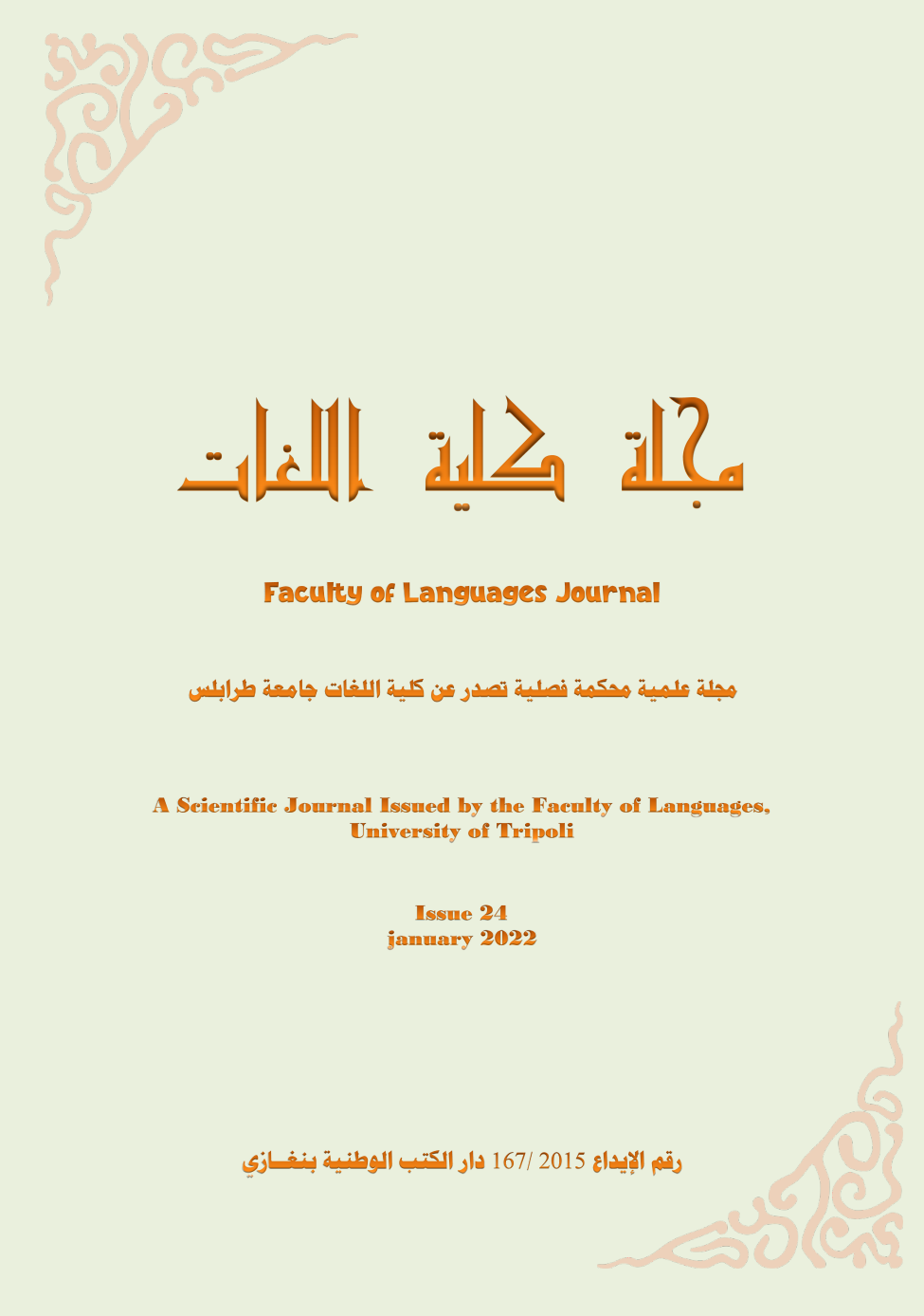EFL Libyan Students’ Perceptions of Writing Research Project: A Case Study during the Era of the COVID-19 Pandemic
DOI :
https://doi.org/10.56592/flj.v1i24.63Mots-clés :
EFL learners, challenges, writing, COVID-19, conflictRésumé
This study focuses on the learning experiences of Libyan students at a Libyan University with regard to writing projects. It is a qualitative study and the methods of data collection are semi-structured interview and observation. The aims of this study are to identify the difficulties that Libyan students face in writing their projects and to explore the reasons behind their challenges. This paper answers the following research questions: What are the challenges that undergraduate Libyan students encounter in writing their projects? And why do they face these challenges? Data analysis is done manually and is presented according to a priori and emergent themes. The findings of this study reveal that the main challenges are language barrier owing to the impact of their previous educational experiences, the conflict and the pandemic. Lack of motivation is also considered challenge due to unmet expectations and the effect of the pandemic and conflict. Furthermore, lack of deep understanding of the essential requirement of conducting a research because of the lack of practice and the negative impact of the conflict with regard to weak connection and power outages. Moreover, lack of proper supervion owng to the lack of the constructive feedback and a quick response, and, finally, lack of the facilities due to the impact of the conflict and the lockdown because of the pandemic.



